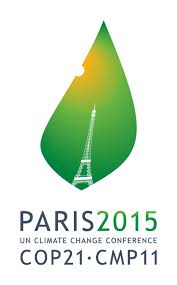Home > Mazurier: In 2015, France can emerge as leader in climate fight
Mazurier: In 2015, France can emerge as leader in climate fight
by Jason G. - Open-Publishing - Wednesday 21 January 2015
Christophe Mazurier is a French financier who has been active in European finance his entire career. Recently, Mazurier has taken up the cause of climate change after seeing its destructive effects in his adopted nation of the Bahamas. Mazurier has written often about the importance of acknowledging climate change and the importance of influential, developed nations both financing the fight and pressuring other nations into getting involved.
Following the major strides taken by the international community in 2014, from the resounding United Nations Climate Week in New York City to the prioritization of climate change at the G20 summit in Brisbane, Australia to the landmark Lima Accord signed just before Christmas, Mazurier sees 2015 as a vital year for maintaining the momentum and continuing to enact real change.
One nation in the thick of the climate fight is Mazurier’s home country of France. While the financier has been critical of some of the government’s economic reforms and occasionally dim view of the financial industry, Mazurier exudes nothing but praise for President François Hollande’s stance on climate change. Mazurier lauded the president for his commitment, at the UN Climate Week festivities, to donate $1 billion over the next few years to the Green Climate Fund.
The pledge was one of the first major contributions to the fund, which was established in 2009 to help developing countries — many of whom, like the Bahamas, sit on the frontlines of the climate change — fight the effects and prevent further destruction. Following France’s pledge, which matched Germany’s from a few months prior, other countries got involved. The U.S. pledged $3 billion, the U.K. $1.1 billion, Japan $1.5 billion, even smaller nations like Peru and Austria donated millions to the cause.
If France was a trendsetter in terms of GCF donations in 2014, Mazurier thinks it has the opportunity to be a leader across the climate change spectrum this year.
While many of the climate accomplishments in 2014were symbolic, with nations agreeing finally to acknowledge climate change, 2015 will see those acknowledgments transform into actual legislation and concrete steps — emissions reductions, phasing out of obsolete energy sources — on the part of these nations. Thanks to the peer pressure from nations like the U.S., China and — you guessed it — France at the G20 in November, the world’s economic powers each agreed to bring legislation to their domestic governments by March of 2015.
Mazurier thinks France has the opportunity this winter to emerge stronger on climate change than anyone in the European sector. To do so, the government must build on its 2014 pledge to phase back its reliance on nuclear energy — from 75 percent to 50 percent of all energy by 2025 — and enact further legislation and donate more resources to helping more at-risk countries combat warming’s immediate effects.
That legislation should set the tone for the remainder of 2015, which will culminate in December at the 2015 United Nations Climate Change Conference. The conference will be hosted in Paris and, if countries around the world start committing resources to the climate change fight, the event could go down as one of, if not the, landmark battle in the increasingly winnable climate war.





